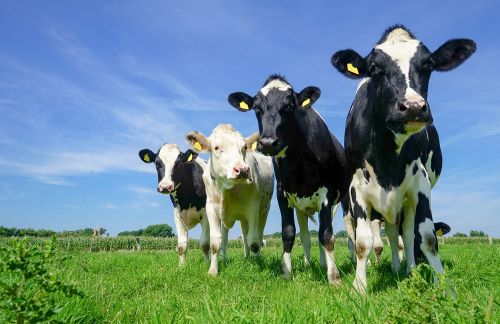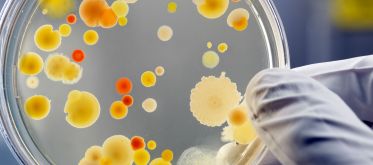
Lyon Laboratory
Director: Laurent Lempereur
Deputy Director: Emilie Gay
Address: 31, avenue Tony Garnier, 69364 Lyon Cedex 07
Email: contact.lyon@anses.fr
Number of employees: Nearly 100, including 80 on permanent contracts, spread out across five scientific units and three departments
The laboratory's missions
The Lyon Laboratory is a multi-purpose facility involved in five of ANSES’s six strategic cross-cutting fields:
- antimicrobial resistance;
- epidemiology and surveillance in the fields of animal health, food safety, plant health and antimicrobial resistance;
- exposure to and the toxicology of chemical contaminants, with a focus on their connection with the protein aggregation observed in animal and human neurodegenerative diseases;
- animal health, through the issue of animal mycoplasmas;
- plant health, by studying resistance to plant protection products.
The laboratory has several reference mandates: it is the National Reference Laboratory (NRL) for transmissible spongiform encephalopathies in animals (bovine spongiform encephalopathy (BSE) and scrapie) and coordinates ANSES's mandate as the Food and Agriculture Organization (FAO) Reference Centre for antimicrobial resistance.
It is also involved in the national epidemiological surveillance platforms for animal health, plant health and food-chain safety.
The laboratory jointly coordinates two major surveillance networks:
- RESAPATH, the surveillance network for antimicrobial resistance in pathogenic bacteria of animal origin;
- Vigimyc, the epidemiological surveillance network for ruminant mycoplasmas.
Lastly, it coordinates the writing and publishing of the Bulletin Epidémiologique on Animal Health - Food Safety. Produced by ANSES and the Directorate General for Food (DGAL), this French open-access scientific journal allows ANSES and the DGAL to exchange information with local, regional and national players working in the fields of animal health and food safety.
To know more about the Laboratory
>> See the leaflet (PDF)
Latest laboratory news

Antimicrobial resistance in animal health: 2024 review
To mark World Antibiotic Awareness Week, ANSES is publishing the annual results from the schemes it coordinates on the monitoring of veterinary medicinal products and on antibiotic resistance in bacteria collected from animals.
The laboratory's units
- Antimicrobial Resistance and Bacterial Virulence (AVB) Unit
- Epidemiology and Surveillance Support (EAS) Unit
- Neurodegenerative Diseases (MND) Unit
- ANSES - VetAgro Sup Joint Research Unit on Animal mycoplasmas (MYCO UMR)
- INRAE Contracted unit on the Characterisation and monitoring of phenomena of pesticide resistance development (CASPER)
The laboratory performs all its services on the basis of a quality management system and documented methods. As such, it is accredited according to the NF EN ISO/CEI 17025 standard. The scope of this accreditation is available on the COFRAC website (1-2287).
Partnerships
The Lyon Laboratory contributes to the thematic research network for animal health and welfare in the Auvergne-Rhône-Alpes region (SAARA), set up jointly with INRAE and VetAgro Sup in 2018. Its objectives are to initiate and support a network of regional players in animal health and welfare research, and to balance the network’s positioning to reflect ANSES's role with respect to INRAE and VetAgro Sup.
The laboratory has also been an associate member of University of Lyon since 2015. It is involved in this university's strategic plan. This positioning is an asset for its regional presence, enabling it to build research capacities through the hosting and supervision of Master and PhD students in collaboration with doctoral schools.
Located at the heart of the Lyon-Gerland Biodistrict, ANSES's Lyon Laboratory is also a member of LyonBiopole. Through this collaboration and its multiple regional partnerships, the laboratory is involved in the new Veterinary Public Health Hub (VPH HUB). Lastly, it has a partnership agreement with the Mérieux Foundation.





